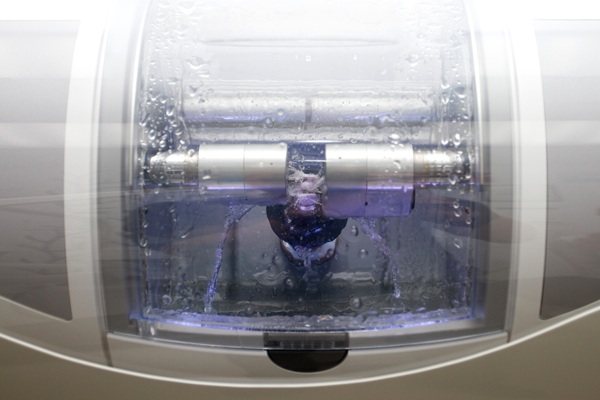 Clinical research shows that Invisalign® can correct gaps in your teeth. Even so, the dentist will determine if your case is a fit for this type of treatment. A successful correction can result in a straight and gapless smile. Here are the details about correcting dental gaps with Invisalign.
Clinical research shows that Invisalign® can correct gaps in your teeth. Even so, the dentist will determine if your case is a fit for this type of treatment. A successful correction can result in a straight and gapless smile. Here are the details about correcting dental gaps with Invisalign.
The causes of gaps in teeth
Dental gaps can cause dental health problems. They can also affect the appearance of one’s smile. This condition allows food particles to stay longer on dental surfaces. This leads to plaque and tartar formation. These gaps may also lead to overcrowding. Here are some of the causes of dental gaps:
- Tongue thrusting.
- A large jaw.
- Thumb-sucking.
- Gum disease.
- Missing teeth.
- Genes.
- Teeth with irregular sizes.
Invisalign for fixing dental gaps
This system is often effective in resolving spacing problems. Minor spaces can close in three months or so. However, the degree of these gaps differs in every individual. The dentist can help determine if the patient can get Invisalign for dental gaps.
Using this system for correcting gapped teeth can take 18 to 24 months. The dentist can assess the patient’s teeth first. This can provide enough information for the dentist to estimate how long the treatment will take. Research reveals that Invisalign clear aligners work faster than traditional braces. There are cases that just need clear aligners. Other dental gaps need a combination of treatments to close.
It will take up to three months to close dental gaps with Invisalign. Larger gaps will take longer. The dentist will determine the set of treatments for each patient. The patient can get dental bonding or veneers alongside clear aligners if necessary.
The benefits of using Invisalign for dental gaps
This clear aligner system is efficient. It is a convenient alternative to traditional braces when it comes to correcting dental issues, such as gaps. Many patients prefer this system because of the many benefits it provides. Here are some of them:
- It allows the patient to continue normal dental care practices.
- It gives quick results.
- It is almost invisible, which helps prevent low self-esteem and awkwardness.
- It does not limit the foods that one eats.
- It is comfortable to wear.
The possible success of the Invisalign treatment depends on the patient’s compliance. The patient must follow the dentist’s instructions at all times. These instructions include wearing the aligners for 20 to 22 hours each day. Removing them will only be necessary during eating, drinking, and performing dental cleaning practices.
After Invisalign
The dentist will assess the patient’s teeth once the gaps close. Checking the progress of the treatment can determine if Invisalign alone has accomplished the task. If the clear aligners worked, this may not be the end of the treatment. Wearing retainers will keep the teeth close together. The dentist will say how long the patient will need to wear them. Following the instructions while wearing the retainers can help this follow-up treatment do its job.
Correcting dental gaps with Invisalign can improve your smile and your dental health
This clear aligner system is a better, more comfortable alternative to traditional braces in closing dental gaps. Invisalign can deal with minor gaps. It can even work with other treatments to correct this dental issue. Working with your dentist can help give you proper dental health and the smile that you want.
Request an appointment or call Aesthetic Dentistry of Noe Valley at 415-493-9143 for an appointment in our San Francisco office.
Related Posts
Invisalign® aligners offer a discreet and convenient alternative to traditional braces. These aligners allow individuals to straighten their teeth without the hassle of wires and brackets. However, as with traditional braces, it is important to properly care for them to ensure their effectiveness and longevity throughout your treatment. Here are some essential tips to help…
Invisalign® has become revolutionary in orthodontics, proving an effective way to straighten teeth discreetly. The system uses smart technology and aligners to shift the teeth in as little as six to 18 months. While many are aware of this fact, there are specific dental conditions known as malocclusions that this revolutionary system is known to…
Invisalign® has emerged as one of the most popular alternatives to traditional metal braces. These teeth-straightening devices are virtually invisible when worn, as their name suggests, yet they can fix many of the teeth alignment issues braces have historically been used for.Examples of orthodontic issues Invisalign can be used to fix include crooked, crowded, poorly…


